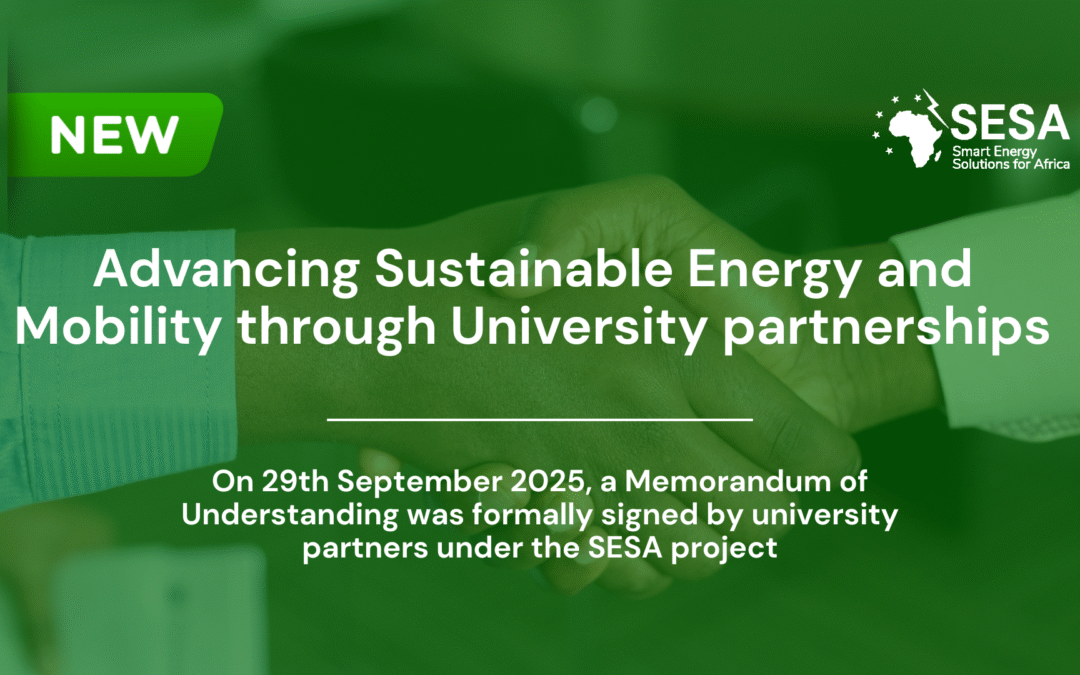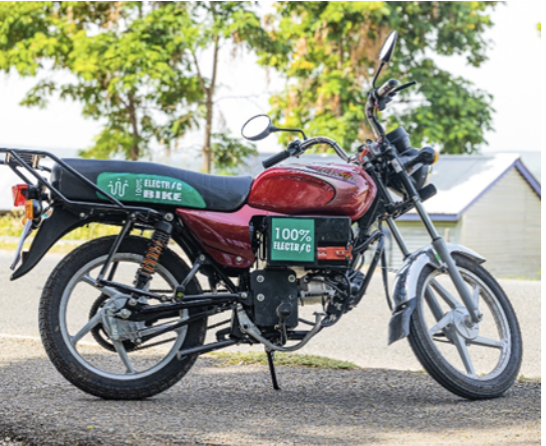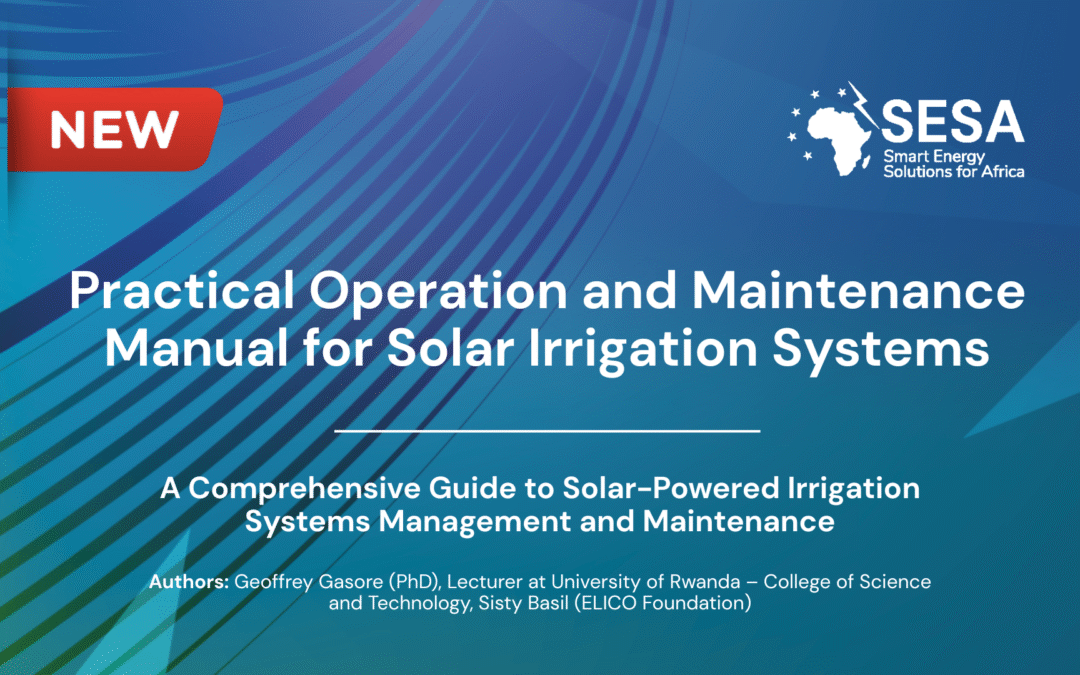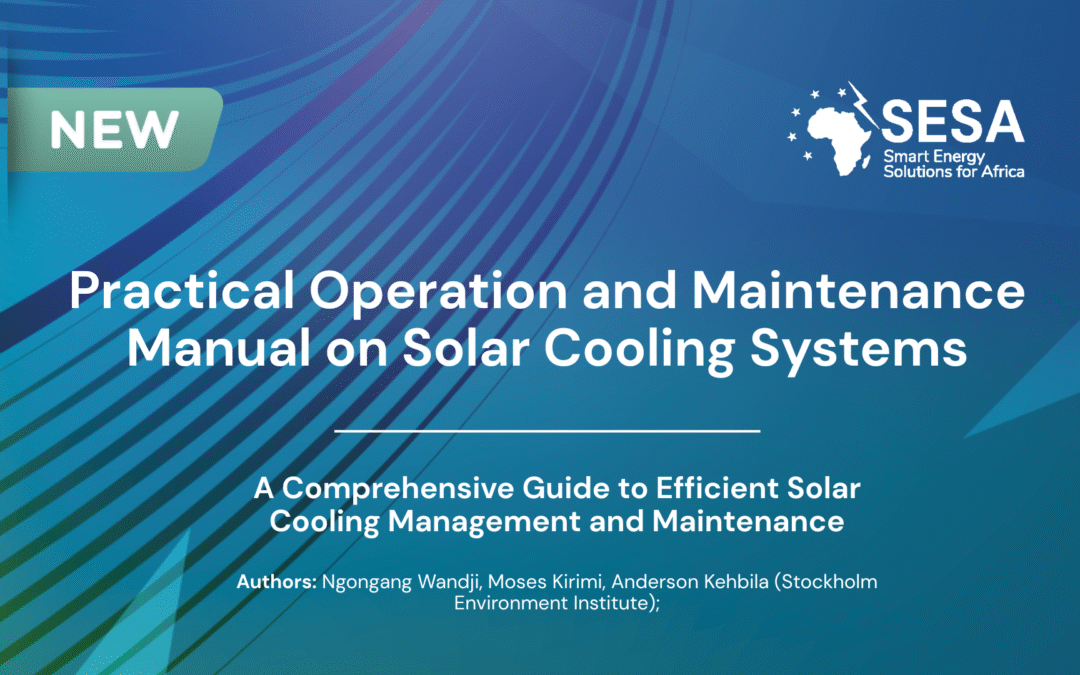Clean cooking refers to the practice of using cooking technologies and fuels that reduce pollution and harmful emissions of greenhouse gases and improve efficiency. It is about shifting away from traditional methods like open fires and inefficient stoves that burn wood, cow dung, or other solid polluting fuels towards modern and cleaner alternatives.
In fact, more 950 million people in Sub-Saharan Africa are still dependent on wood or charcoal (United Nations Climate Change, 2021) with severe consequences especially for women, children, and other vulnerable groups who spend hours collecting firewood and facing significant health risks from indoor air pollution (Health Effects Institute, 2024).
In this context, testing and rolling out clean cooking alternatives is critical. Not only for achieving the Sustainable Development Goals, but also for improving health by reducing premature deaths linked to smoke exposure. By minimizing harmful smoke, modern and clean cooking technologies help prevent respiratory diseases and enhance the quality of life within households. Importantly. Women and children can reclaim several hours each day that would otherwise be spent gathering fuel and starting fires, opening up greater opportunities for education, personal development and economic participation.
The benefits extend beyond health. Shifting to modern cooking solutions reduces reliance on inefficient use of traditional biomass and contributes to protecting forests and curbs greenhouse gas emissions, reinforcing climate action efforts and preserving local ecosystems. At the same time, clean cooking initiatives open new economic opportunities, from the production and distribution of stoves to the creation of supportive services, stimulating local employment and strengthening livelihoods (IEA, 2023a; IEA, 2023b).
Cooking requires heat, commonly produced by combustion. New technologies are now exploring alternative ways to generate the increase in temperature needed for food to be cooked, thanks to electricity and solar irradiation. At the same time, different fuels and cookstoves are tested to minimise the environmental and health risks, in fact, not all combustion generates the same amount of carbon dioxide (CO2), particulate matter (PM) and other types of pollutants, and a great number of harmful emissions can be avoided by using more efficient equipment and fuels.
Examples of clean cooking solutions include:
- Modern stoves designed to burn traditional fuels such as charcoal, wood and dung, more efficiently and less smoke and pollutants.
- Modern fuels like liquid petroleum gas (LPG), natural gas, biogas, and electricity.
- Solar cookers that use solar energy to heat food, reducing the need for traditional and modern fuels.
To compare the many stoves that are on the market, the International Organization for Standardisation (ISO) published in 2018 the first international standard for laboratory testing of cookstoves. Stoves can be categorised in “tiers” on a scale that goes from 0 (baseline) to 5 (high level of performance across all indicators). Indicators are rated individually, and it is possible the same cookstove has different tiers depending on the category. A tier is essentially a performance level:
- Tier 0–2: Traditional open fires or basic biomass stoves that are highly polluting, inefficient and expose users to harmful pollutants.
- Tier 3: Transitional options such as improved biomass cookstoves (ICS), which burn solid fuels more efficiently and produce less smoke but still rely on biomass.
- Tier 4–5: Clean cooking solutions such as LPG, biogas, ethanol, electricity, and advanced stoves that meet international standards for efficiency, safety, and very low emissions.
The World Bank looked at these technologies from a more comprehensive perspective and developed a Multi-Tier Framework (MTF) that includes in the assessment factors such as fuel availability and affordability.
According to the International Energy Agency (IEA), while technologies under Tier 4 and above are classified as clean cooking solutions, Tier 3 ICS remain an important transitional technology. They can deliver significant health benefits, decrease household fuel use, and reduce reliance on traditional biomass, being particularly important in rural contexts where clean fuels and infrastructure remain limited or financially inaccessible in the near future (IEA, 2023a).
The two innovations that were initiated, demonstrated, and replicated through the SESA project in Ghana and Malawi Living Labs are:
- The Econexus Ventures Limited (Econexus) Bio-Ethanol Cooker (Ghana)
- The Make it Green (MiG) BioCooker (Malawi)
Both incorporate elements from the first and the second type of clean cooking solutions listed above, seeking to improve efficiency with new types of fuels such as gel and briquettes, both using byproducts as a source.











Recent Comments